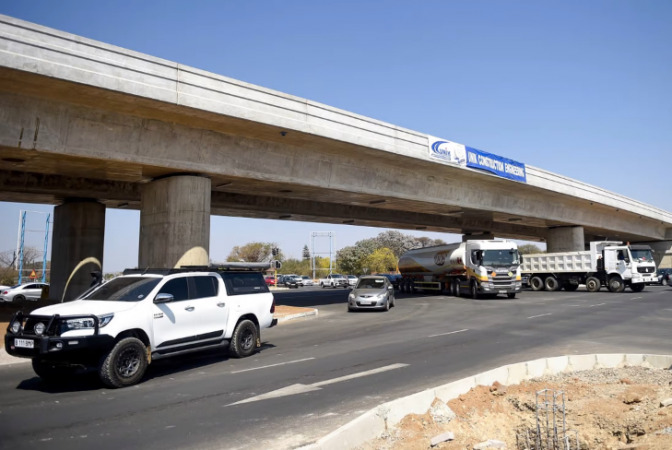When China announced a plan to waive 23 interest-free loans maturing by the end of 2021 for 17 African countries, new research suggests that between US$45 million and US$610 million in debt may have been cancelled.
China announced last month that it would cancel 23 interest-free loans for African nations that were due to mature by the end of 2021. It did not, however, specify which nations would gain or the total amount that would be waived.
The Global Development Policy Centre at Boston University reported on Monday that it had created a database with information on 212 interest-free loans totaling $2.22 billion made to 38 African countries between 2000 and 2020.
According to the study, only 1% of the US$159.98 billion that China advanced to African nations over the past two decades was in the form of interest-free loans.
Beijing’s most recent round of debt forgiveness, according to authors Jyhjong Hwang, a research fellow, and Oyintarelado Moses, a data analyst and database manager, both at the Boston University centre, would only cover a very small portion of its lending to the continent.
Moses stated that, from 2005 to 2022, there were ten announcements made at United Nations high-level meetings and the Forum on China-Africa Cooperation (FOCAC) declaring China would cancel debt for African countries. These announcements included the most recent waiver of interest-free loans.
According to Moses, the provision and cancellation of [interest-free loans] are significant diplomatic and symbolic tools in China’s lending practises and are likely to remain so in the future.
Interest-free loans from the China International Development Cooperation Agency (CIDCA), Beijing’s foreign aid organisation, are customarily waived by China. 2018 saw CIDCA assume control of the Ministry of Commerce’s Department of Foreign Aid in China. Over a five, ten, or twenty-year repayment period, there is no interest added to the loans.
China’s Belt and Road Initiative, which was launched in 2013, takes a tougher stance on restructuring for developing countries when it comes to development or concessional lending. The loans were “more akin to foreign policy instruments than bottom line-oriented financial instruments,” according to the researchers.
The researchers put forth a number of estimates for the total cancelled values based on various time frames, national standards, and the assumption of at least a 10-year maturity.
In one instance, they calculated the average loan amount for interest-free loans signed between 2000 and 2012 and maturing in 2021 to be $8.38 million, making the 23 loans worth an average of US$192.65 million in cancelled loans. According to this estimate, the cancellations could have a value as low as $44.76 million or as high as $609.57 million.
According to the researchers, the highest estimate of US$609.57 million represented roughly 1% of the total US$53.79 billion in loan commitments made between 2000 and 2012. Approximately 1% of the US$159.98 billion in Chinese loans to Africa since 2000 would be cancelled if all US$2.22 billion in interest-free loans in the China Loans to Africa Database were cancelled.
Interest-free loans, according to the study, were primarily used to help countries build public facilities and launch projects to improve people’s standard of living, while concessional loans were used for manufacturing projects, large- and medium-sized infrastructure projects with economic and social benefits, or for plants, machinery, and electronic products.
The study stated that the cancellations of loans intended to bridge the financing gap of medium-sized projects too large for grants but too small for concessional loans “show a consistent and customary practise of forgiving Chinese interest-free loans.”
“Interest-free loan forgiveness in Africa is consistent with China’s general debt relief practises during times of global crises,” according to the report. “The pandemic has worsened the debt situations of countries receiving loans from global financing institutions, including Chinese financing institutions.”
Beijing announced last year that it had cancelled interest-free loan debts maturing at the end of 2020 for 15 African countries as part of the FOCAC framework and promised to exempt debt incurred from interest-free loans incurred at the end of 2021 for least-developed African countries.
According to the China Africa Research Initiative (CARI) at the Johns Hopkins University School of Advanced International Studies, cancellations announced in Botswana, Burundi, Rwanda, Cameroon, the Democratic Republic of the Congo, the Republic of Congo, and Mozambique total at least US$113.8 million.
Professor of international political economy at Johns Hopkins University and the founder of CARI Deborah Brautigam claimed that the practise of forgiving past-due interest-free loans had developed into a regular programme that essentially transformed one form of foreign aid coming from China’s central budget (the interest-free loan) into another (a grant).
Other debt restructuring methods, according to her, involved banks that themselves took out loans on the bond market.
“Banks are much more likely to refinance a loan, extend the grace period, or extend the repayment period for troubled loans.
They won’t accept principal write-downs, she predicted.

